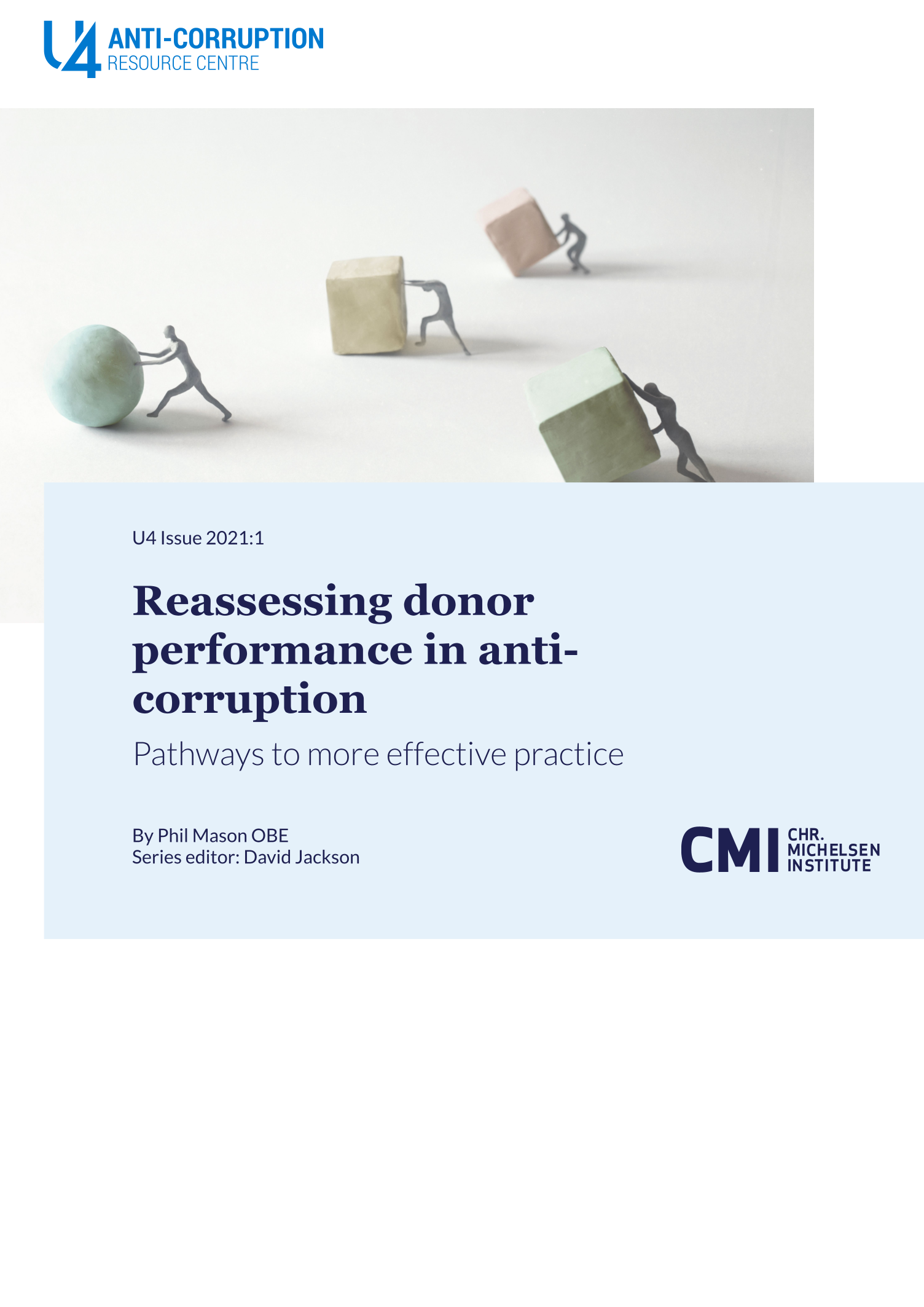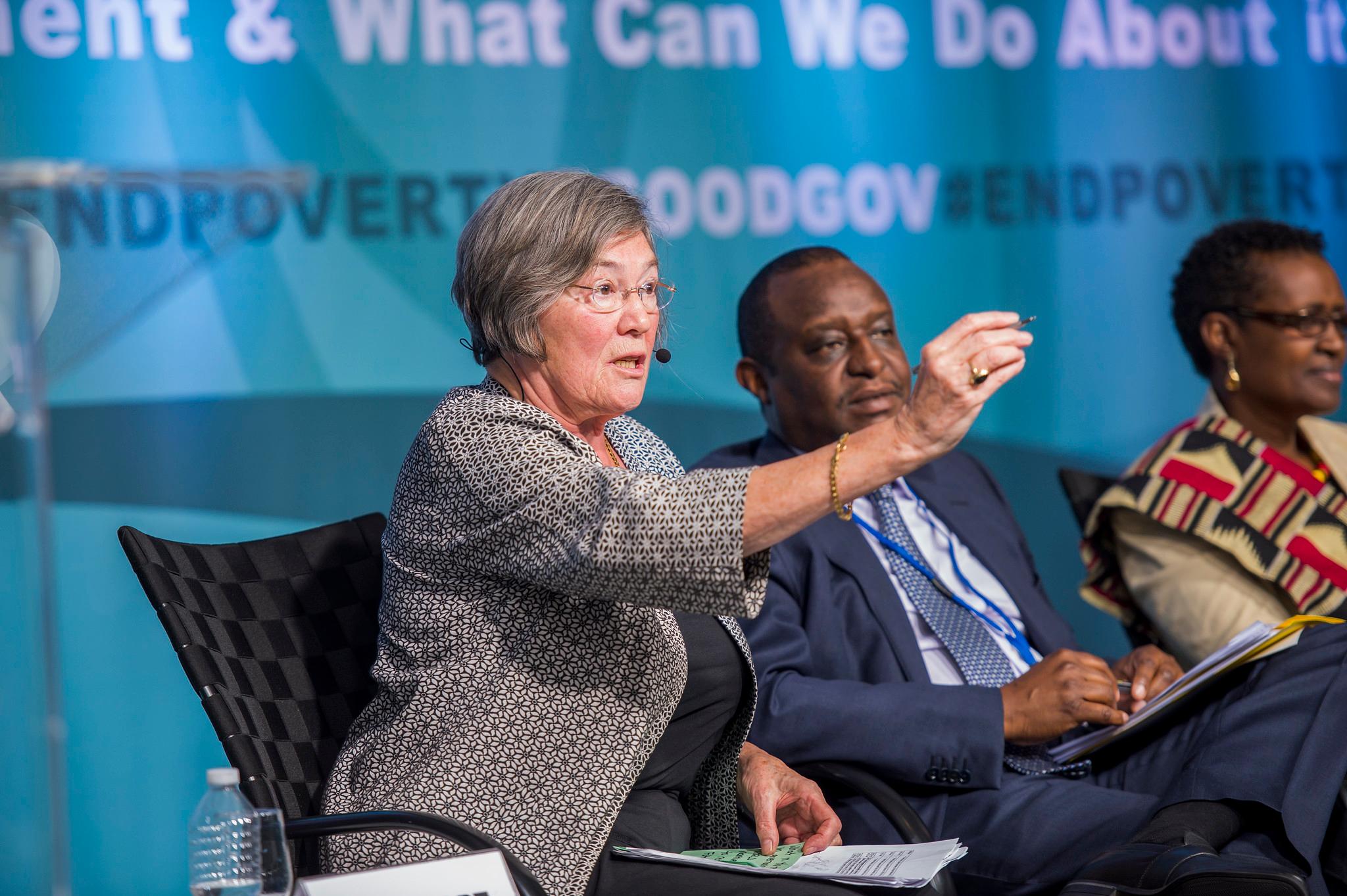A summarised version of this U4 Issue is also available:
Are donors mad? Reassessing performance in anti-corruption
Main points
- The working methods that donors use are likely to be determining overall outcomes just as much as the technical content of their interventions.
- These methods relate to how donors conceptualise the corruption problem; how they organise themselves in their operations; how they respond to corruption when they encounter it; and how their technical staff are deployed. Each of these considerations is significantly shaping what they do. All of them may be having inhibiting effects on donor performance.
- A significant evidence base has accumulated that demonstrates how current donor approaches fall far short of their ambitions.
- This publication proposes new pathways for donors to follow. These challenge the current orthodoxies of donor thinking, donor organisation, and donor relationships with others, both within their own governments and with the recipients of their assistance.
- These pathways point to a need to break with numerous traditional ways of working, many of which are deeply ingrained within donor agencies. There are many obstacles to making these adjustments. Change is unlikely to be quick or easy. None of the new pathways is a silver bullet on its own.



